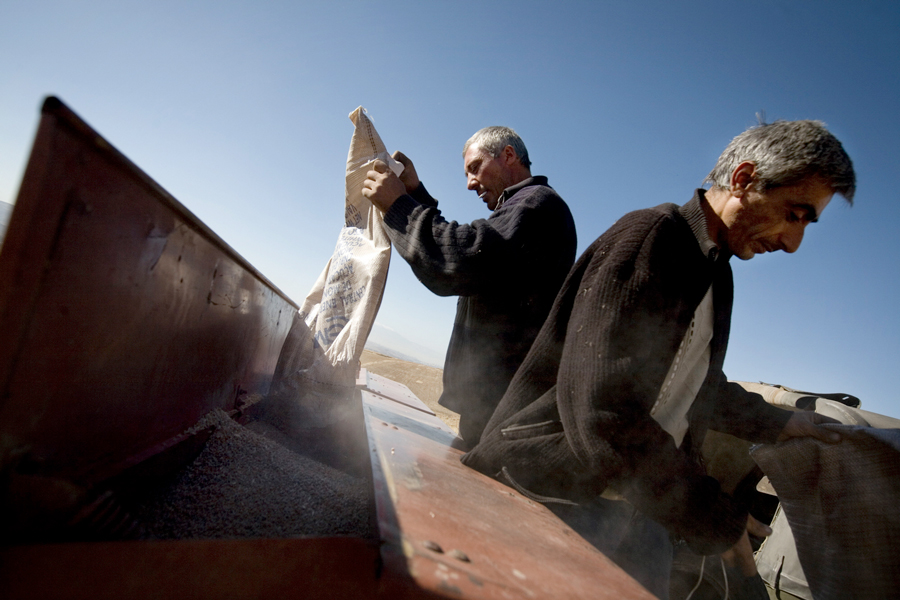FAO and Green Climate Fund partner for climate change adaptation and green growth in Armenia
 A tractor is being prepared for sowing winter wheat in a field near Yerevan, Armenia.
A tractor is being prepared for sowing winter wheat in a field near Yerevan, Armenia.Today, the Green Climate Fund Board approved a project in Armenia, formulated with FAO support, to enhance climate change adaptation and mitigation, promote rural green growth, and increase the resilience of forests.
Climate change threatens over 15 percent of Armenia’s higher plant species with extinction. Semi-desert and desert areas are projected to expand by 30 percent, accelerating desertification. More frequent summer droughts and water stress will reduce the growth rate of trees and increase susceptibility to pests and diseases; at the same time, the frequency and intensity of wildfires may increase, leading to an estimated 14 000 to 17 000 ha of forest loss by 2030.
The eight-year Green Climate Fund project, with a total budget of USD 18.7 million, will be implemented by FAO and the Environmental Project Implementation Unit in close cooperation with the Ministry of Environment of Armenia. The effort will be further supported financially by the Government of Armenia, the Austrian Development Agency, the Autonomous Province of Bolzano, and WWF Armenia.
“Restarting from nature and its ecosystems will allow the country to set an example for carbon reduction programmes and climate adaptive silviculture,” said FAO Representative, Raimund Jehle.
The two target regions – Lori marz in the north and Syunik in the south – were selected based on the forest type, population density, local poverty levels, and exposure to climate change, in addition to its impact on important forest ecosystems.
Through investments in agroforestry and capacity development, the project will increase national forest cover and carbon removal from forests by reducing fuelwood demand, supporting reforestation and afforestation, and introducing sustainable and climate adaptive forest management.
Armenian forests are expected to suffer significant growth losses as climate change makes trees more vulnerable to attack by insect pests. Severe and repeated pest infestations will lead to increased tree mortality, which also contributes to the accumulation of drying dead organic matter in forests, increasing the risk of wildfires.
A key element of the project is the involvement of the private sector for a wider impact, and to ensure long-term sustainability by introducing energy-efficient heating stoves for rural areas.
“By financing the development of low-cost, energy-efficient stoves in the country, the project will increase awareness of the affordable heating stove options available to people living in rural areas, which can lead to savings for private households, as well as public benefits, such as reduced greenhouse gas emissions,” said FAO’s Jacopo Monzini, leader of the GCF project formulation team.
Involving multiple stakeholders is a key focus of the project. During the formulation, a diverse group of experts from ministries, non-governmental organizations, research institutes, and international organizations were consulted to maximize the ownership at national level.
